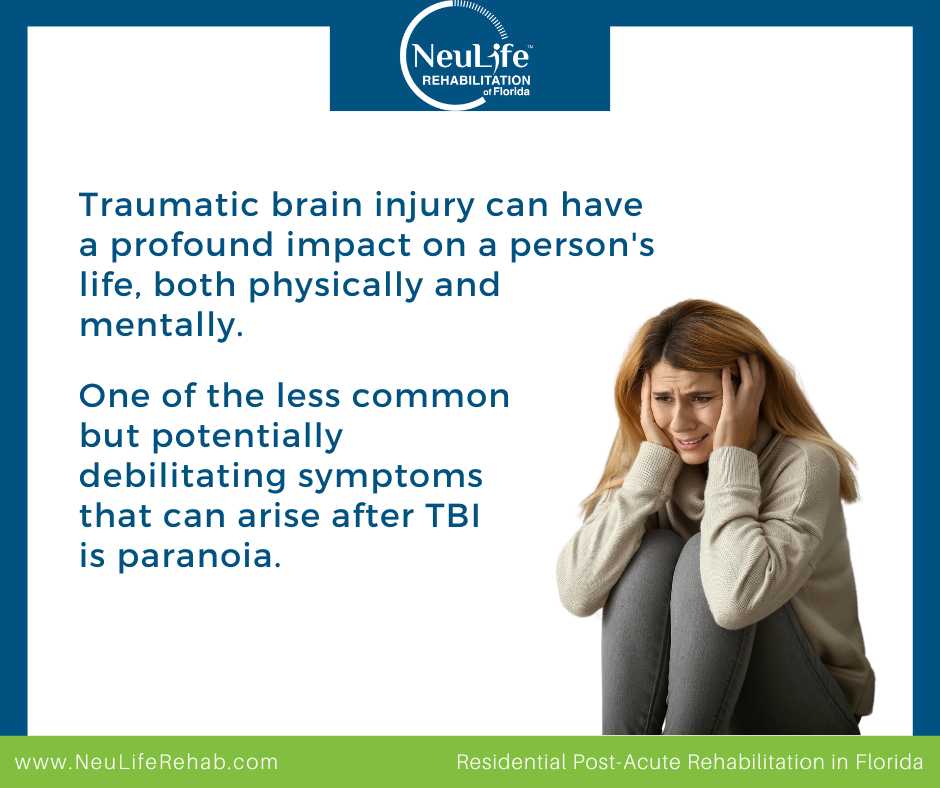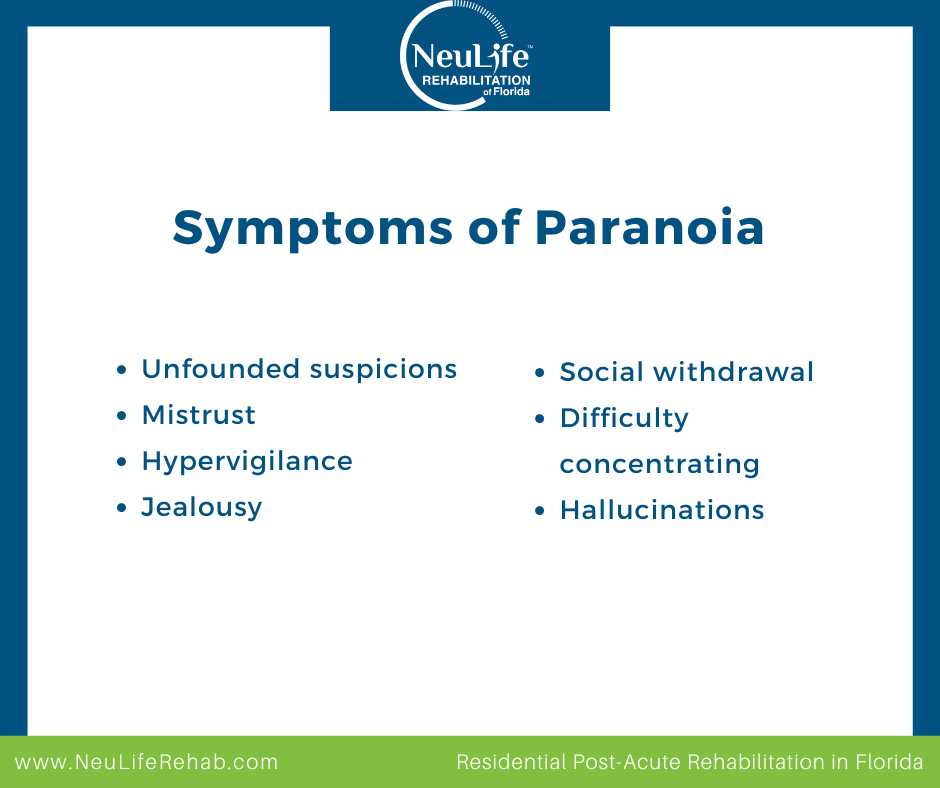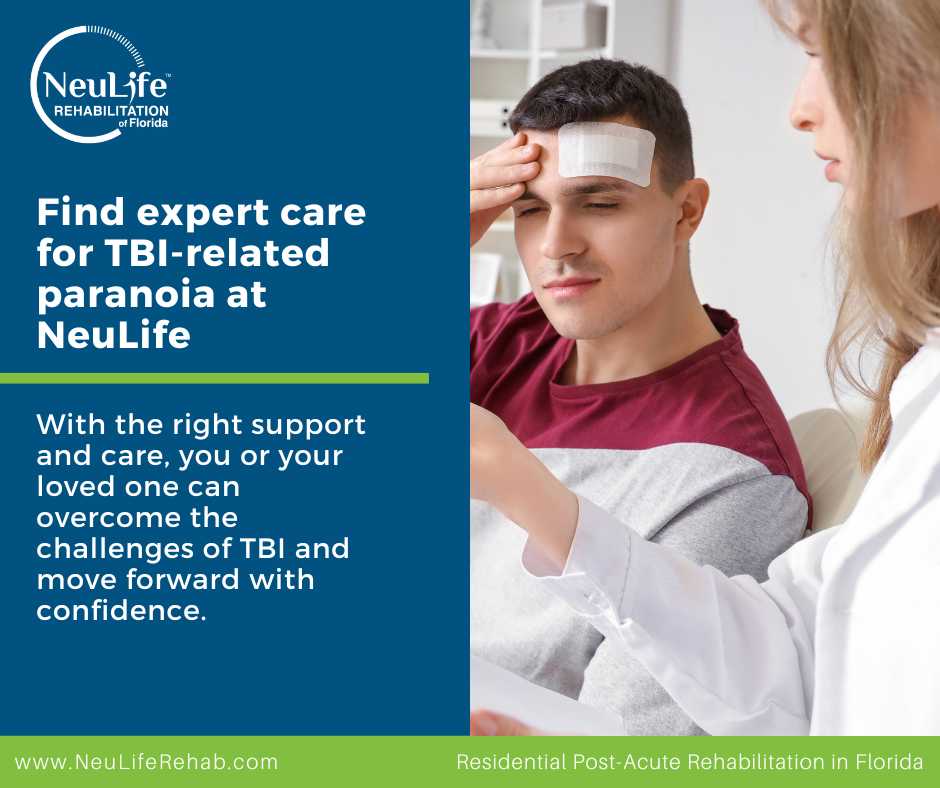Traumatic brain injury (TBI) can have a profound impact on a person's life, both physically and mentally. One of the less common but potentially debilitating symptoms that can arise after TBI is paranoia.

Paranoia is characterized by persistent and unfounded suspicions or distrust of others. It can significantly impair a person's relationships, quality of life, and overall well-being.
Read on below and learn about the causes, symptoms, and treatment options for paranoia in TBI patients.
Paranoia is a persistent and unfounded belief that others are out to harm or deceive you. It involves excessive suspicion, mistrust, and vigilance, even when there is no evidence to support these beliefs.
Paranoia can be a symptom of various mental health conditions, including schizophrenia, bipolar disorder, and post-traumatic stress disorder (PTSD).
Paranoia after TBI is a complex issue with multiple contributing factors. While the exact mechanisms are not fully understood, several theories have been proposed:
Traumatic brain injury can cause damage to various brain regions, including those involved in memory, perception, and emotional processing. This damage can disrupt the normal functioning of these areas, leading to distorted thoughts and perceptions.
TBI can disrupt the balance of neurotransmitters—the chemical messengers that facilitate communication between brain cells. Imbalances in neurotransmitters, such as dopamine and serotonin, have been implicated in the development of paranoia.
Pre-existing mental health conditions, such as anxiety or depression, can increase the risk of developing paranoia after a brain injury. Additionally, the stress and emotional trauma associated with a TBI can contribute to the development of paranoid thoughts.
Paranoia in patients with TBI can manifest in various ways, and the severity of symptoms can vary greatly. Some common symptoms include:
Paranoia can also lead to social isolation, difficulty maintaining relationships, and problems with employment. Patients may be constantly on guard, making it difficult to concentrate or relax. This can also lead to increased stress and anxiety, further exacerbating symptoms.
Paranoia and anxiety can sometimes overlap, making it difficult to distinguish between the two. However, there are some key differences:
Paranoia also shares some similarities with other mental conditions, particularly schizophrenia, bipolar disorder, and borderline personality disorder.
Diagnosing TBI-related paranoia involves a comprehensive evaluation by a qualified neuropsychologist.

They may perform several diagnostic exams, such as neurological exams, neuropsychological testing, and mental health assessment.
After a comprehensive evaluation, they can develop a personalized treatment plan for the patient.
The treatment for paranoia in TBI patients may involve a combination of approaches, depending on the severity of symptoms and the individual's needs. This includes the following:
Medications can be used to help manage symptoms of paranoia, such as antipsychotics and antidepressants.
Cognitive-behavioral therapy (CBT) is often effective in treating paranoia by helping patients identify and challenge negative thought patterns.
Support groups can provide a sense of community and emotional support for individuals with TBI and paranoia. Connecting with others who have similar experiences can help reduce feelings of isolation and stigma.
Making lifestyle changes, such as getting enough sleep, exercising regularly, and managing stress, can also help improve symptoms of paranoia.
Providing support to a loved one experiencing paranoia after TBI can be challenging. However, it's important to remember that your support can make a significant difference. Here are some strategies:
Learn as much as you can about TBI and paranoia. This can help you better understand your loved one's experiences and provide more effective support.
Here are some helpful communication strategies you can do to make your loved one feel supported:
A healthy and supportive environment can help your loved one with TBI-related paranoia feel more comfortable, confident, and hopeful. Here’s how you can do that:
Encouraging your loved one to seek professional help and undergo therapy can be a valuable tool for managing paranoia and improving overall quality of life.
A therapist can help your loved one develop coping strategies, challenge negative thought patterns, and build healthy relationships.
If you or a loved one is experiencing paranoia after a brain injury, it’s crucial to seek specialized care from professionals who understand the complexities of this condition, like the medical team at NeuLife.

NeuLife Rehabilitation is one of the best brain injury rehabilitation centers and a leading provider of post-acute rehabilitation. We offer comprehensive, personalized care tailored to the unique needs of TBI patients.
Our multidisciplinary team includes experts in neurology, psychology, physical therapy, and rehabilitation who work together to create individualized treatment plans.
At NeuLife, we go beyond treating the injury itself—we address the full spectrum of challenges associated with TBI, including cognitive impairments, behavioral issues, and emotional health. Our holistic approach ensures that patients not only recover physically but also regain confidence and stability in their daily lives.
Contact us today and learn more from our neuro rehabilitation team.
The material contained on this site is for informational purposes only and DOES NOT CONSTITUTE THE PROVIDING OF MEDICAL ADVICE, and is not intended to be a substitute for independent professional medical judgment, advice, diagnosis, or treatment. Always seek the advice of your physician or other qualified healthcare providers with any questions or concerns you may have regarding your health.

We know that choosing the next step in your recovery from a catastrophic illness or injury is complex. Together, we can help you take the next step.
Contact us with any questions today.